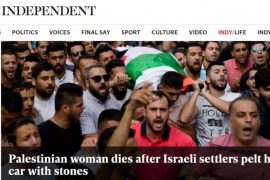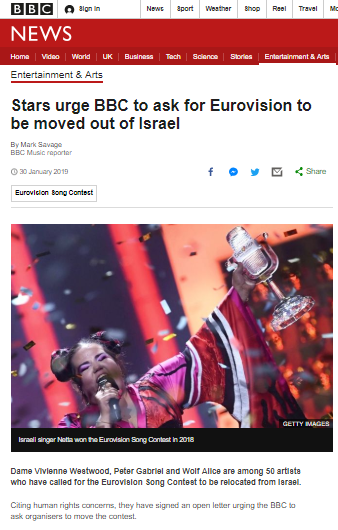Ali Akbar Hashemi Rafsanjani, Iranian president from 1989 to 1997, and mentor to current President Hassan Rouhani, died of a heart attack on Sunday at 82.
In multiple BBC reports on his death, Rafsanjani was characterised as one of the most “influential figures since the 1979 revolution” and a “pragmatic conservative” who became “a key supporter of reformists”.
However, in our review of BBC’s coverage of the former president’s death, there was one glaring omission: his key role in Iran’s use of global terror as a tool of foreign policy.
A recent report at The Tower details Rafsanjani’s record of terror:
A Central Intelligence Agency assessment from 1990 found that Rafsanjani had targeted “enemies of the regime” during the previous year, and predicted that “Rafsanjani and other Iranian leaders will continue selectively using terrorism as a foreign policy tool to intimidate regime opponents, punish enemies of Islam, and influence Western political decisions.”
In 1992, four Iranian dissidents were killed in a Berlin restaurant. A German court found in 1997 that both Rafsanjani and Supreme Leader Ayatollah Ali Kamenei “not only allow terrorist attacks abroad…they themselves set in action such attacks.” Iranian foreign policy, the court concluded, involved identifying opponents abroad and having them “liquidated.”
That same year, the Israeli embassy in Argentina was bombed, as was the AMIA Jewish community center in Buenos Aires two years later, with both attacks widely believed to have been done by the Iran-sponsored terror group Hezbollah. Argentine investigators concluded that the AMIA bombing had been approved at a meeting attended by Khamenei and Rafsanjani.
Also during Rafsanjani’s tenure, the Khobar Towers complex in Saudi Arabia, which housed American troops, was bombed by Saudi and Lebanese members of Hezbollah in a plot that was planned by Iranian agents. 19 U.S. Air Force personnel were killed in the blast, as were a number of Saudis and nationals of other countries. The bombers who were captured said that they were trained by Iran’s Islamic Revolutionary Guard Corps (IRGC) and had received $250,000 and logistical support from an IRGC general. Then-FBI Director Louis Freeh testified before Congress that “the attack was planned, funded and sponsored by senior leadership in the government of the Republic of Iran, that the IRGC principally had the responsibility of putting that plan into operation.”
Of course, BBC readers were also not informed that Rafsanjani, on multiple occasions, explicitly called for Israel’s destruction.
For more information on the attack on the AMIA Jewish community center (and the subsequent cover-up) see here.





